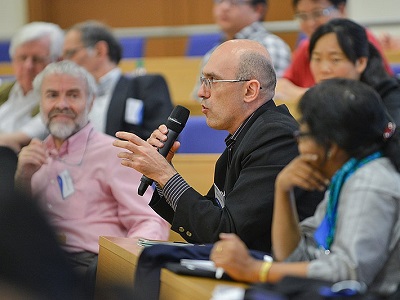Norberto Pignatti of ISET to be Invited as Panel Speaker at 2016 IAMO Forum
- Details

The relevance of agriculture in formal employment dropped in many European, Central and East Asian countries over the previous decades. The mutually reinforcing and interdependent processes of development outside the agricultural sector, along with significant urbanization, have resulted in new dynamics and diversity in rural labour landscape. Remittances, as the link between urban and international migrants and their original households, have gained importance in sustaining rural livelihoods, especially in poorer countries and regions. Yet in a number of countries, agricultural activities still fulfil important safety net functions. However, a potential lack of qualified agricultural labour and increasing wages, as observed in some places, will constrain future prospects of the agricultural and non-agricultural sectors. These phenomena are not fully understood in terms of their functioning, relation to poverty and effect on sustainability outcomes.
International Conference on Food Security and Nutrition in Tbilisi
- Details

On June 15-16th, Oxfam organized and hosted the International Conference on Food Security and Nutrition in Tbilisi. ISET President Eric Livny was a panel member for the session on Food Security (FS) monitoring and evaluation (M&E) and discussed the major findings of a research piece entitled “Assessing Food Security Data Relevance and Collection Mechanisms in the South Caucasus” conducted by APRC at the end of 2015. He emphasized the importance of tailoring data collection to the needs of stakeholders and ensuring that (M&E) systems are not only created but properly utilized. He focused on the efficient allocation of resources and pointed out the importance of collaboration between various stakeholders in the field of FS.










